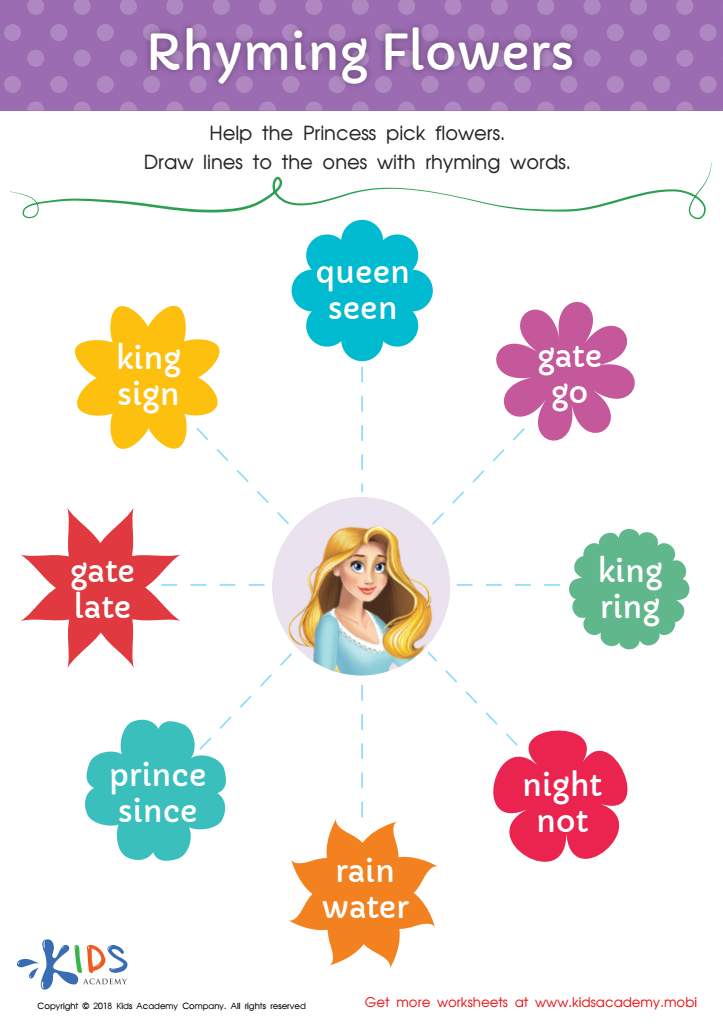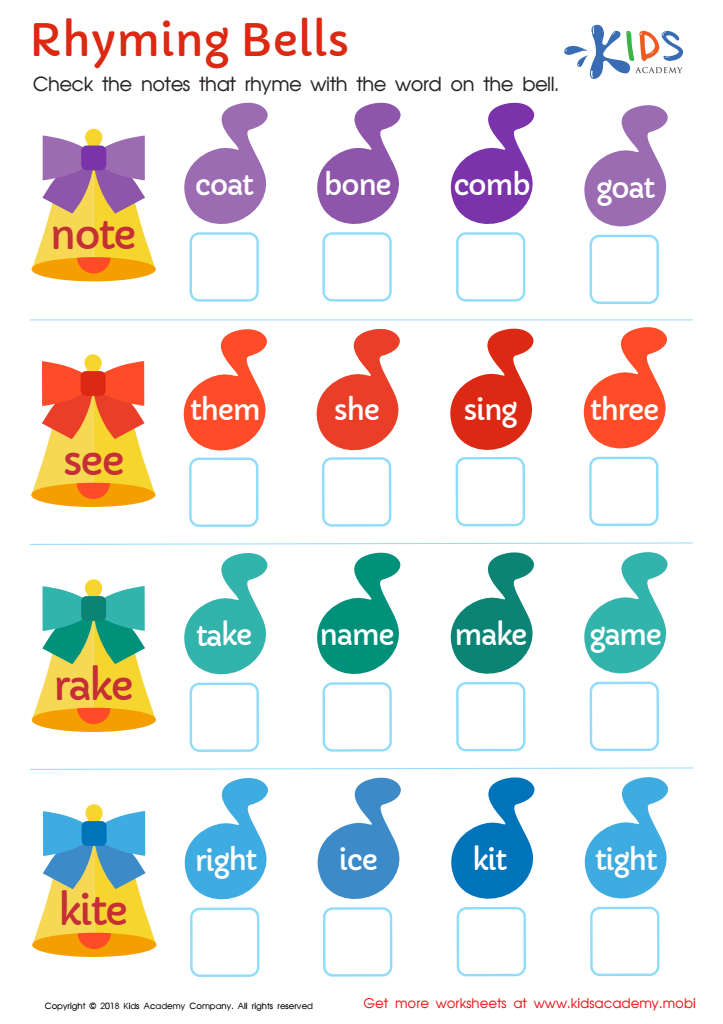Vocabulary enhancement Normal Rhyming Worksheets for Ages 4-7
6 filtered results
-
From - To
Boost your child’s vocabulary with our engaging Normal Rhyming Worksheets, specially designed for ages 4-7! These worksheets provide a fun and interactive way for young learners to explore rhyming words and enhance their language skills. By participating in various activities, children will improve their pronunciation, develop phonemic awareness, and expand their vocabulary in a playful manner. Ideal for preschool and early primary education, our easily printable resources support learning at home or in the classroom. Encourage your child's love for language while strengthening foundational skills. Start your rhyming adventure today and watch their vocabulary flourish!


Rhyming Words: Assessment Worksheet


Rhyming Flowers Worksheet


Rhyming Words Rhyming Worksheet


Rhyming Bells Worksheet


First Words: Picture Rhymes Worksheet
Vocabulary enhancement through normal rhyming is crucial for children aged 4-7 for several reasons. At this developmental stage, children are rapidly acquiring language skills and their ability to express themselves. Rhyming activities engage them in a fun and interactive way, making language learning enjoyable and effective. When children hear and produce rhymes, they develop phonemic awareness, which is foundational for reading and spelling.
Furthermore, rhyming introduces young learners to new words and phrases, expanding their vocabulary. This exposure not only enriches their language but also aids in comprehension, as they learn to connect words with meanings. Rhymes often have rhythm and melody, making them memorable, which encourages children to use new vocabulary in their everyday conversations.
Engaging in rhyming through songs, poems, and games fosters social interaction and enhances listening skills. It creates opportunities for parents and teachers to bond with children while reinforcing language concepts. By prioritizing vocabulary enhancement through normal rhyming, parents and teachers lay a solid groundwork for literacy development, promote creativity, and inspire a lifelong love of learning. Investing in this aspect of language development has lasting benefits that contribute to a child's overall academic success.
 Assign to My Students
Assign to My Students















